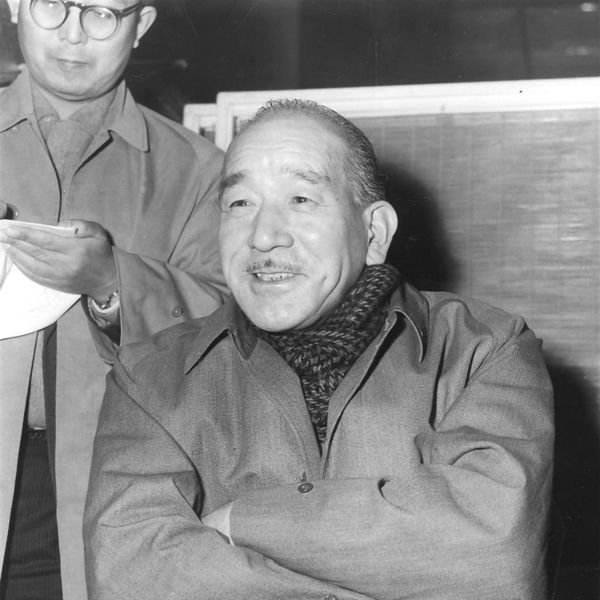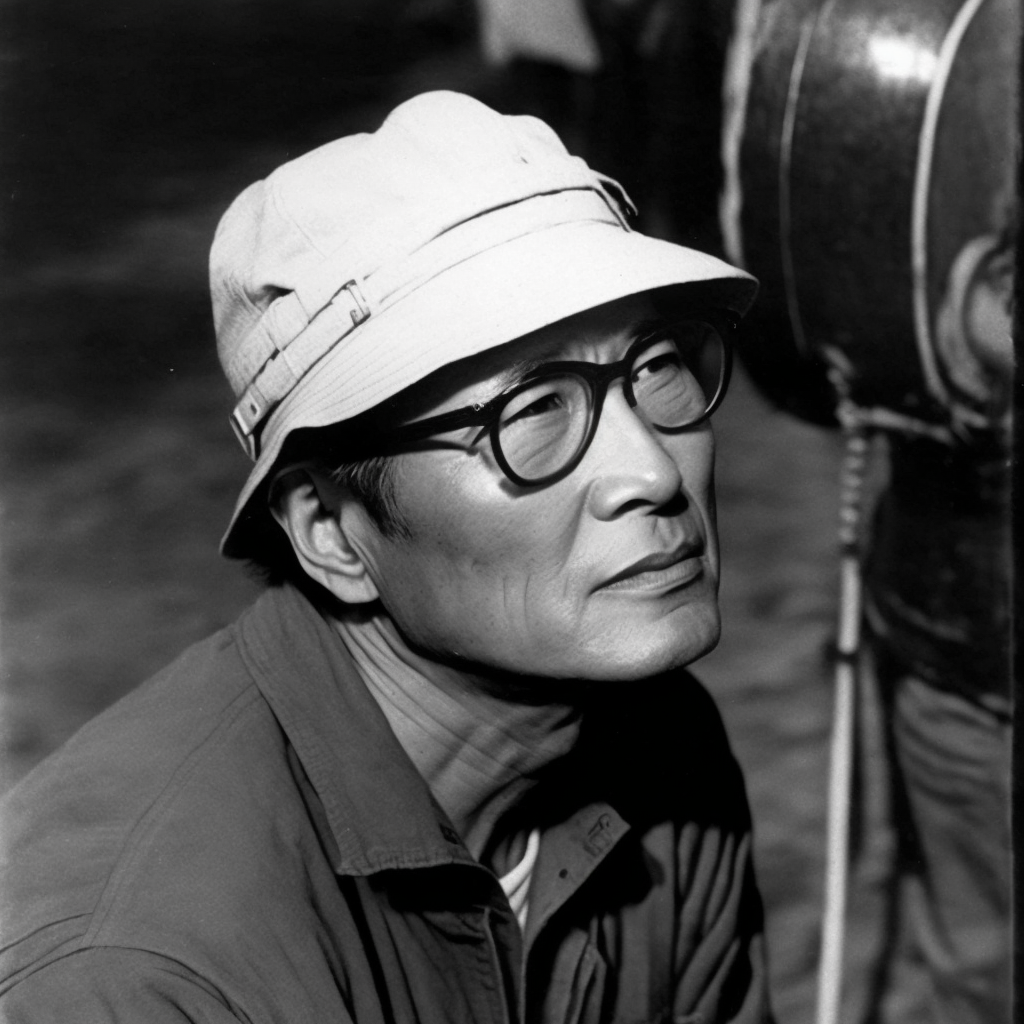Yasujirō Ozu (1903-1963) is a world famous Japanese director, known for his intimate and contemplative films, which have had a profound impact on the history of cinema. Nicknamed the “everyday poet”, Ozu is famous for his ability to capture with seemingly banal simplicity the complexity of human relationships, family and traditions in Japan. His filmography is rich in masterpieces such as “Journey to Tokyo”, “Early Spring” and “The Taste of Sake”. This article explores the life, work and legacy of Yasujirō Ozu, one of the most influential directors of the 20th century.
Biography of Yasujirō Ozu:
Yasujirō Ozu was born on December 12, 1903 in Tokyo, Japan. He grew up in a middle-class family and developed an interest in cinema at an early age. After graduating from Waseda University with a degree in literature, he joined the Shochiku film production company in 1923. Early in his career he worked as an assistant director, but in 1927 he made his first feature film, “A Page crazy”. The beginning of his career was marked by films influenced by silent cinema and Charlie Chaplin-style comedies.
Unique Cinematic Style:
It was not until the 1930s that Yasujirō Ozu developed his distinctive style that would make him famous. Unlike most Japanese directors of his time, Ozu preferred to focus on the everyday lives of ordinary Japanese people rather than epic or dramatic stories. His style is characterized by fixed shots, carefully framed compositions, limited camera movements and subtle visual transitions.
One of the most striking elements of his style is the use of the “tatami shot” technique. This involves placing the camera at tatami height (traditional Japanese mat) to give the viewer the impression of being seated on the ground, directly observing the scene. This approach creates an emotional closeness with the characters and allows an immersion in their daily life.
Recurring themes:
Throughout his career, Yasujirō Ozu explores universal themes that affect viewers around the world. Family, love, loss, tradition and the passage of time are all deep subjects found in his films. He often depicts intergenerational tensions, Japan’s modernization and social changes, while maintaining an attachment to tradition.
His films often depict life in the Japanese middle class, highlighting the complex family relationships and the sacrifices family members must make for the well-being of others. The delicate treatment of these themes shows his deep understanding of human nature and Japanese society.
Legacy and recognition:
Despite his limited overseas success during his lifetime, Yasujirō Ozu became a highly influential and respected filmmaker long after his death. In the 1950s, his work began to gain international recognition, and today he is considered one of the greatest directors of all time.
Many well-known directors, such as Martin Scorsese and Jim Jarmusch, have cited Ozu as a major influence on their work. His films continue to be studied and celebrated for their timeless quality and ability to capture everyday life with poetic simplicity.
Filmography:
Yasujirō Ozu’s main films:
- Journey to Tokyo (1953) Tokyo Monogatari
- The Taste of Sake (1962) Sanma no aji
- Hello (1959) Ohayô
- Late Spring (1949) Banshun
- End of Autumn (1960) Akibiyori
- Early Summer (1951) Bakushu
- Equinox Flowers (1958) Higanbana
- Twilight in Tokyo (1957) Tôkyô boshoku
- Tokyo Kids (1932) Otona no miru ehon – Umarete wa mita keredo
- Last whim (1961) Kohayagawa-ke no aki
- The Taste of Green Tea Rice (1952) Ochazuke no aji
- Floating Grass (1959) Ukikusa
- There was a father (1942) Chichi ariki
- Early Spring (1956) Sôshun
- An Owner’s Tale (1947) Nagaya shinshiroku
- The Only Son (1936) Hitori musuko
- Floating Grass Story (1934) Ukikusa Monogatari
- Tokyo Choir (1931) Tôkyô no kôrasu
- An Inn in Tokyo (1935) Tôkyô no yado
- Where are the dreams of youth? (1932) Seishun no yume ima izuko
Yasujirō Ozu will forever remain a pillar of Japanese and world cinema. His unique cinematic approach, his ability to explore timeless themes and his impact on contemporary directors make him a legendary filmmaker. Yasujirō Ozu’s films continue to move and inspire audiences, testifying to the strength of his talent and his enduring legacy in the history of cinema.



